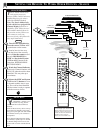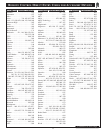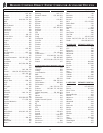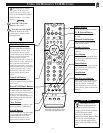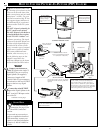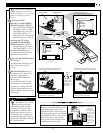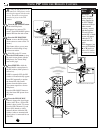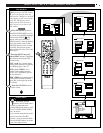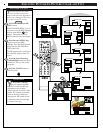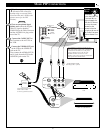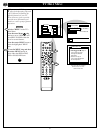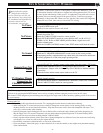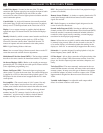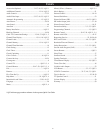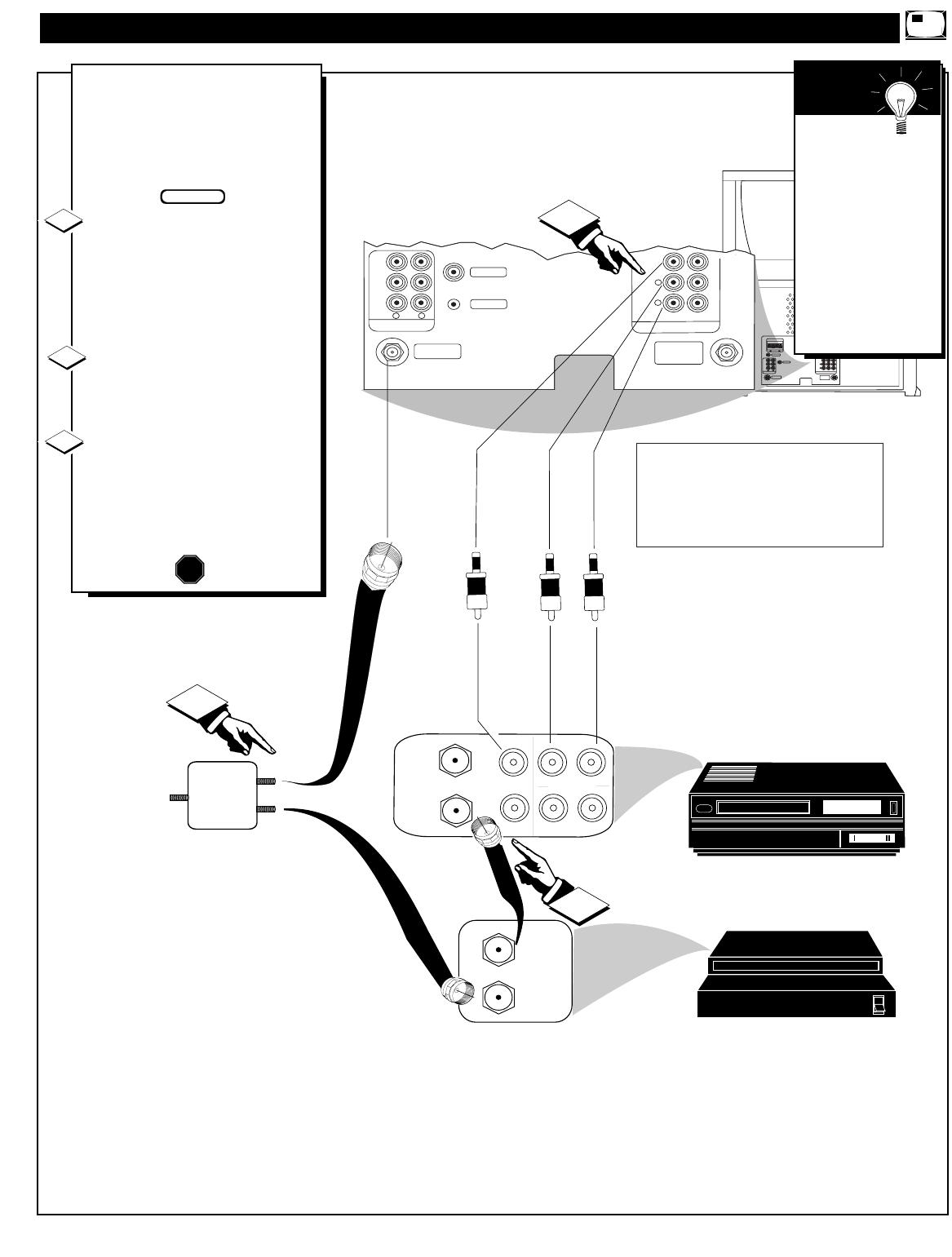
VAR
PIP
VIDEO OUT
AUDIO OUT
L
R
FIXED
VAR
PIP
ANT A/CABLE
75 ⍀ UHF/VHF
INPUTS
VIDEO
AUDIO
AUX 1 AUX 2
R
L
ANT B/CABLE
75 ⍀ UHF/VHF
PIP
IR BLASTER
1
CABLE OUT
CABLE IN
ANTENNA
OUT
ANTENNA
IN
VIDEO AUDIO
IN
IN
OUT OUT
2
RL
3
REAR SURROUND SPEAKERS
SUBWOOFER
VIDEO OUT
AUDIO OUT
+
–
+
–
R
L
L
R
FIXED
VAR
PIP
ANT A/CABLE
75 ⍀ UHF/VHF
Y
INPUTS
P
B
P
R
S-VIDEO
VIDEO
AUDIO
AUX 1AUX 2
R
L
ANT B/CABLE
75 ⍀ UHF/VHF
PIP
AUX 3
MORE PIP CONNECTIONS
T
he following example is for an
alternative PIP connection
hookup using an external Cable
Converter Box and a VCR (as the
picture source for the PIP
window).
First use an optional signal
splitter and connect the original
cable TV signal to both the
CABLE IN on the Cable Converter
and the ANTENNA A plug on the
rear of the TV.
Connect the CABLE OUT on
the Converter to the ANT. IN on
the VCR.
Connect the VIDEO OUT jack
on the VCR to the VIDEO IN
jack on the TV.
Also connect the AUDIO OUT (R
and L) jacks from the VCR to the
AUDIO IN jacks on the TV.
SIGNAL
SPLITTER
Contact the Parts Information
Center 1 800 851-8885
to order any optional accessories
CABLE TV CONVERTER
VCR
REAR OF TV
AUDIO VIDEO CABLES
(RCA Plug Cables - optional)
1
2
3
STOP
Remember
to use the Cable TV
Converter Box to
select channels for
PIP, the VCR must
be set to the same
channel as the
channel selection
switch on the rear of
the Cable Converter
(either channel 3 or
4).
SMART
HELP
BEGIN
53
The ANTENNA A signal input supplies the TV’s
Main screen picture, and the AUX 1 VIDEO Input
connection from the VCR serves as the picture
source for PIP. Be sure to set the TV’s PIP
SOURCE SELECT control to the “AUX 1
VIDEO” mode in order to display the Audio/Video
Input signals within the PIP window.




